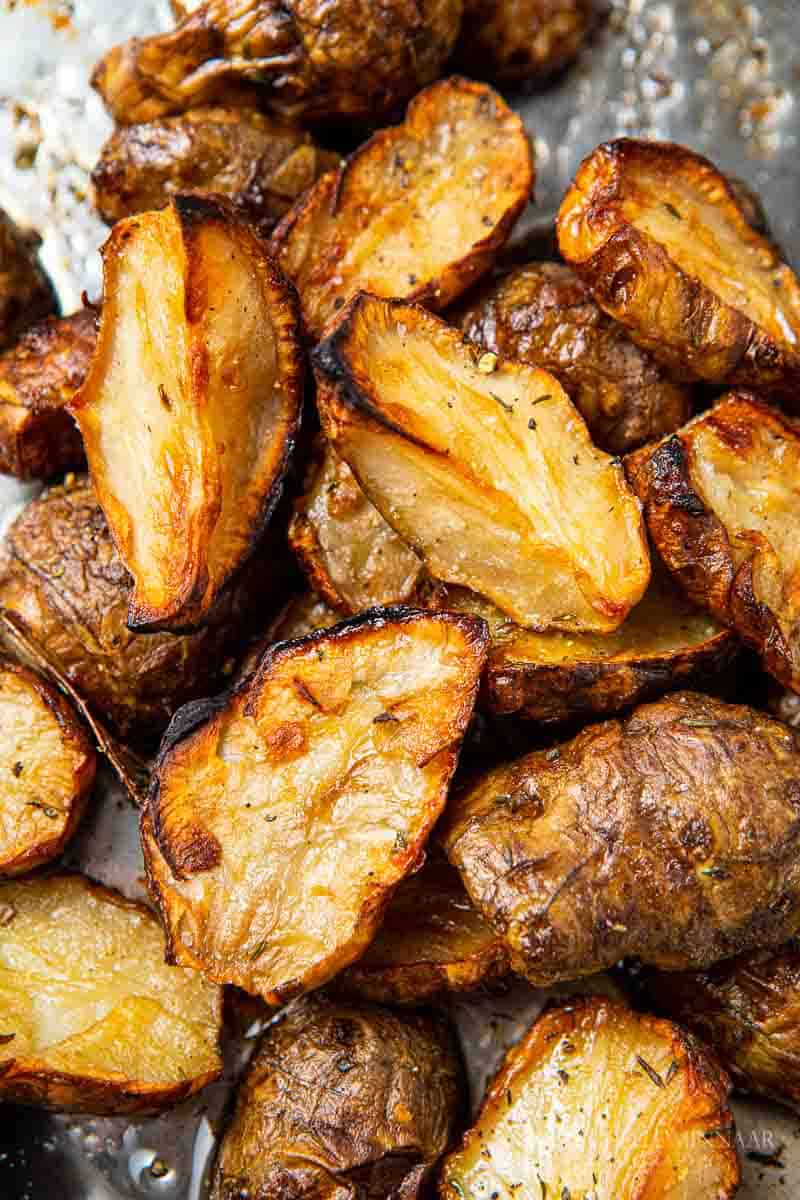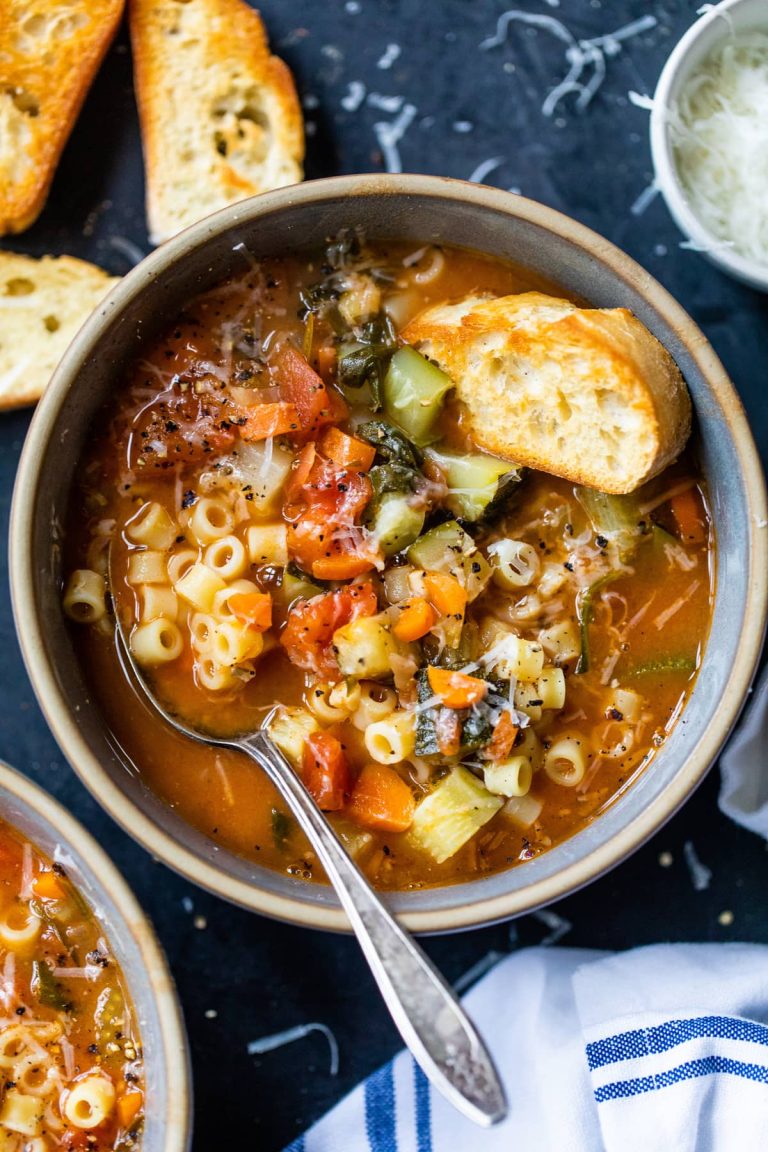Roasted Jerusalem Artichokes or Sunchokes: Recipe, Tips, and Health Benefits
Jerusalem artichokes, or sunchokes, are tubers from a type of sunflower (Helianthus tuberosus). Despite their name, they aren’t related to artichokes or Jerusalem. These knobby, brown-skinned vegetables have a crisp texture when raw and a nutty, sweet flavor. When roasted, they become tender with a caramelized exterior, making them a popular choice for various dishes.
Nutritional Benefits of Jerusalem Artichokes
Jerusalem artichokes offer numerous health benefits, thanks to their rich nutrient profile. A 100-gram serving contains about 73 calories, 17 grams of carbohydrates, and 1.6 grams of protein. They’re an excellent source of dietary fiber, particularly inulin, a prebiotic that supports healthy gut bacteria. Additionally, they provide vital minerals such as iron, potassium, and magnesium, contributing to overall health. Including Jerusalem artichokes in your diet can aid in digestion, support heart health, and help manage blood sugar levels.
| Nutrient | Amount |
|---|---|
| Calories | 73 kcal |
| Carbohydrates | 17 g |
| Protein | 1.6 g |
| Dietary Fiber | 1.6 g |
| Iron | 3.4 mg |
| Potassium | 429 mg |
| Magnesium | 17 mg |
Preparing for Roasting
Choosing the Right Artichokes
Select firm and unblemished Jerusalem artichokes. Look for tubers that are firm to the touch and free from soft spots or wrinkles. Smaller tubers often have a more tender texture when roasted, while larger ones may need more time to cook through. Ensure uniform size for even roasting.
Necessary Ingredients and Tools
Gather the following for a seamless cooking experience:
- Fresh Jerusalem artichokes (about 1 pound)
- Olive oil (2 tablespoons)
- Salt (1 teaspoon)
- Freshly ground black pepper (1/2 teaspoon)
- Optional: thyme or rosemary for added flavor
You’ll also need:
- A baking sheet
- Parchment paper
- A sharp knife
- A vegetable brush
- A large mixing bowl
With the right artichokes and necessary tools, you’ll ensure a smooth preparation process.
How to Roast Jerusalem Artichokes
Step-by-Step Roasting Process
- Preheat the Oven
Set the oven to 400°F (200°C). A hot oven ensures even cooking and caramelization. - Wash and Scrub
Clean the Jerusalem artichokes under cold water. Use a brush to remove any dirt from the skin. - Cut into Uniform Pieces
Slice the tubers into 1-inch (2.5 cm) pieces. Uniform size guarantees even roasting. - Toss with Olive Oil
Place the sliced artichokes in a bowl. Drizzle olive oil over them, ensuring an even coat. - Season Generously
Add salt, pepper, and any desired herbs like rosemary or thyme. Mix well so that each piece is coated. - Spread on Baking Sheet
Lay the pieces in a single layer on a baking sheet. Spacing evenly prevents steaming and promotes roasting. - Roast in the Oven
Place the sheet in the preheated oven. Roast for 25-30 minutes, turning halfway through to ensure even browning. - Check for Doneness
Pierce the artichokes with a fork. They should be golden brown and tender inside. - Serve Immediately
Transfer to a serving dish. Enjoy while they’re hot to appreciate their best flavor.
- Use Fresh Tubers
Fresh Jerusalem artichokes produce better flavor and texture. Store them in a cool, dry place if not using immediately. - Avoid Overcrowding
Overcrowding the baking sheet results in steaming instead of roasting. Use multiple sheets if necessary. - Rotate for Even Cooking
For the best results, rotate the baking sheet halfway through the roasting time to achieve uniform browning. - Experiment with Flavors
Enhance the dish by adding garlic cloves or different herbs. This keeps the recipe versatile and exciting. - Monitor Cooking Time
Depending on your oven, you might need to adjust the cooking time slightly. Keep an eye on the artichokes to prevent burning.
Adhering to these steps and tips can elevate your roasted Jerusalem artichokes, making them a delightful addition to any meal.
Serving Suggestions
Best Pairings with Roasted Sunchokes
Roasted sunchokes bring a nutty, earthy flavor to the table. They pair well with various dishes due to their versatile taste. For meats, consider pairing them with roast chicken, grilled steak, or braised lamb. The robust flavors of these meats complement the subtle sweetness of sunchokes.
For vegetarian options, serve them alongside roasted vegetables, quinoa salads, or lentil stews. Their texture blends well with other root vegetables like carrots, parsnips, and beets. Dairy accompaniments, such as a dollop of crème fraîche, goat cheese, or a sprinkling of parmesan, enhance their creamy interior.
Creative Serving Ideas
Incorporate roasted sunchokes into unconventional dishes to impress your guests. Use them as a base for a hearty soup, blending them with broth, garlic, and herbs for a rich, comforting dish. Add them to a pizza, topping them with arugula, prosciutto, and a drizzle of truffle oil for a gourmet twist.
For a simple yet elegant appetizer, slice them thin and serve with a dip, like an herbed aioli or spicy tomato chutney. Create a sunchoke gratin by layering thin slices with cream, cheese, and breadcrumbs, then bake until golden and bubbly.
Experiment by adding roasted sunchokes to your pasta dishes. Toss them with penne, spinach, and a light lemon garlic sauce, or mix them into a creamy risotto for an added depth of flavor. Their versatility makes them an exciting addition to many recipes.
Health Benefits of Roasted Sunchokes
Digestive Health and Fiber Content
Roasted sunchokes are an excellent source of inulin, a type of prebiotic fiber. Inulin promotes the growth of beneficial gut bacteria, which enhances digestive health. A single serving of roasted sunchokes provides about 10-12g of fiber, significantly contributing to your daily intake. This fiber aids in regulating bowel movements, preventing constipation, and maintaining overall gut health.
Other Notable Health Benefits
Sunchokes offer numerous other health benefits due to their rich nutrient profile. They contain essential vitamins such as vitamin C, which supports your immune system, and vitamin B1, which aids in energy production. Roasted sunchokes are also high in minerals, including potassium and iron, which are crucial for maintaining cardiovascular health and preventing anemia, respectively. Their antioxidant properties help combat oxidative stress, reducing the risk of chronic diseases. Eating roasted sunchokes not only enriches your diet but also supports overall well-being.
Conclusion
Roasted Jerusalem artichokes, or sunchokes, are a delightful addition to any meal. Their unique flavor and impressive nutritional profile make them a versatile ingredient you’ll want to incorporate into your cooking repertoire. Whether you’re pairing them with meats, vegetarian dishes, or dairy accompaniments, roasted sunchokes can elevate your culinary creations.
Experiment with different seasonings and serving ideas to truly appreciate their versatility. By following the preparation and cooking tips provided, you’ll ensure perfectly roasted sunchokes every time. Enjoy their health benefits and delicious taste as you explore new and exciting ways to include them in your diet.






